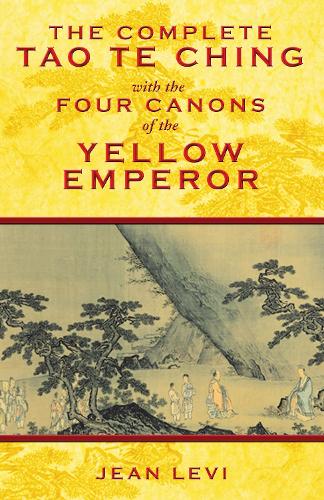
The Complete Tao Te Ching with the Four Canons of the Yellow Emperor
(Hardback)
Publishing Details
The Complete Tao Te Ching with the Four Canons of the Yellow Emperor
By (Author) Jean Levi
Inner Traditions Bear and Company
Inner Traditions Bear and Company
27th January 2011
United States
Classifications
General
Non Fiction
Sacred texts, scriptures and revered writings
299.51482
Physical Properties
Hardback
192
Width 137mm, Height 210mm, Spine 20mm
304g
Description
In 1973, in Mawangdui, China, a large number of silk manuscripts were discovered at an early Han burial place. Among these were two versions of the Tao Te Ching by Lao-tzu. Dated to around 200 BCE, these manuscripts were much older than all existing versions and included, quite surprisingly yet deliberately, the Four Canons of the Yellow Emperor - a long-lost treatise never-before seen in modern times. Based on both the Mawangdui version of the Tao Te Ching and the recently discovered Guodian version, this book is the first to restore the Four Canons of the Yellow Emperor to its rightful place alongside the Book of the Way. Complementing the philosophy of the Tao Te Ching with its more practical advice, the Four Canons cover the art of ruling, metaphysics, military matters and ways of meditation. Showing how this pairing of texts established the foundations of the Han Dynasty's power, Jean Levi offers extensive notes throughout the text, providing information essential for understanding as well as highlighting the many connections between these two classic works. *Presents the practical guidance of the Four Canons on the art of ruling, metaphysics, military matters,and ways of meditation *Includes translations of the earliest known versions of the Tao Te Ching *Highlights the many links between the Four Canons and the Tao Te Ching
Reviews
This edition, offering both a familiar and an unfamiliar text, should be of immense interest to scholars as well as devotees of the Way; essential for any scholarly collection on Asian religions. * Library Journal, March 2011 *
Author Bio
Jean Levi, a renowned scholar of classical Chinese literature and culture, studied at the University of Beijing and the University of Fudan as well as in Shanghai during the Cultural Revolution. A director of research at the National Center of Scientific Research in France, he has written a number of books on Confucius, Chuang Tzu and Taoist philosophy. He lives in Paris.
